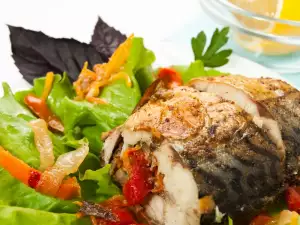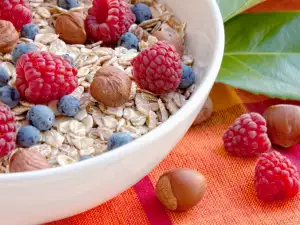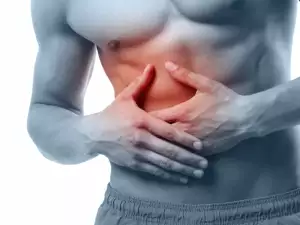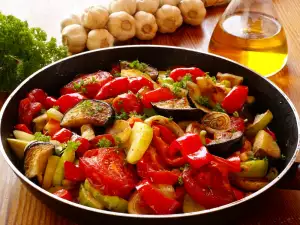We live in a time of global obesity. Statistics show that between 9 percent and 30 percent of the population suffers from obesity, which increases the risk of diabetes of the second type.
It is essential to balance your weight, because excess weight predisposes you to sensitize the body to insulin.
Diabetes is very dependent on the diet. A mild, determined diet that has a therapeutic purpose. Strict enforcement of the laws of the diet is essential for medium and vital in severe diabetes.
It is normal in a day to take in about 55-60% carbohydrates, 30% fat and 11-16% protein.
Compulsory is the intake of sufficient water to ensure good flow of metabolic processes in the body.

Carbohydrates in plants are the main source of energy and there is no direct correlation between the CV and the level of sugar in the blood. Fats are also a source of energy and proteina are the main building blocks of the body, muscles, skin, blood cells and brain. However, proteins are a poor source of energy.
In the 70s it was discovered that there is a link between the consumption of high in fat foods and heart disease, and the risk of this in diabetic patients is high. Today people with diabetes are advised to consume products containing complex carbohydrates, fiber, and foods that are low in sugar and fat.
A diet for diabetes is not only part of the treatment, but also a means of therapy.
Now we will introduce some of the basic rules of nutrition
- We need to eat at least 3 times a day.
- Reduce drinks and products containing sugar to a minimum.
- Choose foods rich in fiber. These are whole-grain breads, beans, peas and lentils. This food increases blood sugar slightly and slows the absorption of glucose.
- Eat more fruits and vegetables, avoiding sweets - grapes and mangoes are great.
- Dried fruits are also allowed, but only in small quantities.

- You can monitor the amount of fat taken in. Only 10% of calories taken during the day must be derived from fatty substances.
- Restrict the use of salt, it raises blood pressure.
- Alcohol is allowed, but only in moderation. It lowers blood sugar below the permissible minimum - 3.3 IMO / l. Liqueur is completely banned, sweet and semi-sweet wines too. It is permitted to accept up to 250 ml. semi and dry wines, and 50 ml. liquor.
- Products that contain mainly carbohydrates such as chocolate, biscuits, bread, potatoes, sweet etc., raise blood sugar levels. You can eat them in very moderate quantities because they are eating. They deliver more than the necessary energy to the body and the excess is converted into fat.
Experts advise us to consume foods with a low glycemic index because they break down more slowly, which maintains normal sugar level.
Choose foods with complex carbohydrates because they are rich in vitamins, minerals and protein. These include potatoes, pasta, bread, rice, lots of vegetables and legumes.
Exclude fats of animal origin. Those of plant - oil from canola and olive oil are allowed.
Is recommended to consume oily fish twice a week - salmon and mackerel, as they are rich in omega-3 fatty acids.




















Comments